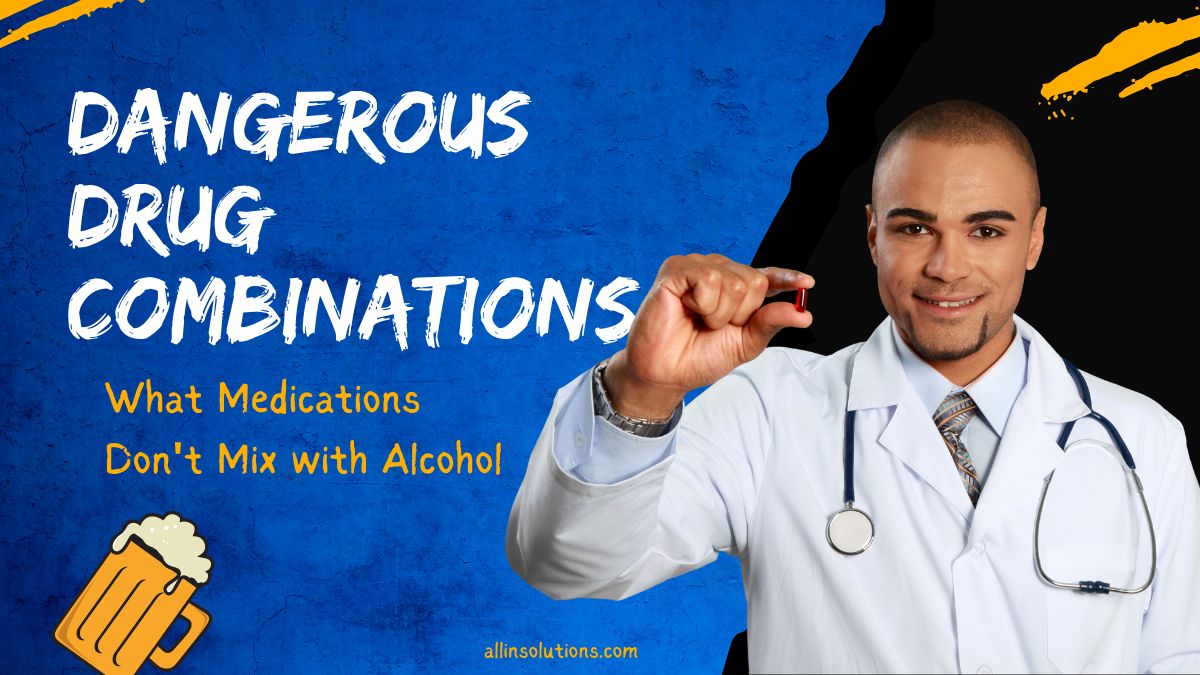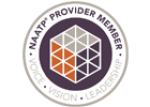Although medication can be very helpful, not all medications work in harmony. Prescription drugs can be powerful and have severe side effects when taken with alcohol or other drugs. If you take prescription drugs and also take illicit drugs or drink alcohol, keep reading to find out if the combination is dangerous.
Mixing alcohol and other drugs can pose dangers
Mixing alcohol and other drugs can lead to a variety of serious health problems, depending on which type of drug is being used. Opioids are particularly dangerous when combined with alcohol. In fact, around a quarter of opioid overdoses each year are linked to the combination of prescription opiates and alcohol. It is dangerous to mix prescription drugs and alcohol for the following reasons:
- It can cause impaired decision-making
- It can make it difficult to know when to quit drinking
- It can stop the medication working properly.
- It can cause long-term health problems such as liver damage and internal bleeding, mental issues, heart disease, stroke, and brain injury.
- It can amplify the effects of the drugs leading to an overdose
Certain medications can mask symptoms of intoxication and make you believe you aren’t intoxicated. This can lead overconsumption or alcohol poisoning.
Prescription medications may cause a patient with a mental illness to become more severe if they are combined with alcohol. Prescription attention deficit hyperactivity disorder (ADHD), for example, can cause patients to feel jittery rather than alert. Because they don’t realize how drunk they are, they may be more at risk of overdosing on alcohol.
Related Reading:
- Risks of MDMA & Breastfeeding
- What Happens When You Mix Weed and Antidepressants?
- Does Adderall Damage Your Heart?
- The Dangers of Ambien Addiction
These Drugs Shouldn’t Be Mixed with Alcohol
- Opiate Pain Killers – Pain medication such as Oxycodone should not be mixed with alcohol. It can slow down the heart rate and cause breathing problems, which can lead to death. Overdosing on opioids can cause breathing problems and lead to alcoholism. This applies regardless of whether you’re taking opioid pain medication like morphine and oxycodone or illicit opioids such as heroin.
- Anxiety Medication – Anxiety drugs combined with alcohol can cause slowed breathing and memory problems, impairment, or other unusual behavior.
- Benzodiazepines – Combining Benzodiazepines with alcohol can cause overdose. The medication stays in the body for longer when taken with alcohol. Combining the two can cause drowsiness and dizziness as well as blackouts, difficulty breathing, impaired motor control, and drowsiness.
- Cough Medicines – Some cough suppressants have alcohol. When combined with alcohol, your system could have a higher level of alcohol than you know. This can increase your chance of overdosing.
- Metformin – Combining diabetes medications such as Metformin with alcohol can lead to severe low blood sugar levels, and even a coma.
- High blood pressure medications: Drugs used to treat high blood pressure may cause irregular heart beat and fainting if they are combined with alcohol.
- GHB – Gammahydroxybutyric Acid is an approved drug for the treatment narcolepsy. However, it can cause breathing difficulties and depressant side effects.
- Barbiturates These medications help with anxiety but can also cause the heart rate and blood pressure to drop too much when taken with alcohol. This could lead to death or coma.
- Ambien, Lunesta, and Other Sleep Meds – People with trouble sleeping can receive medication to aid their sleep. They may also take alcohol to relax. Combining these medications can slow down the heart rate and lead to coma, or even death.
- Prescription stimulants & ADHD Meds – This includes drugs with amphetamines such as Adderall, as well as medications with methylphenidate like Ritalin. Both drugs can be easily misused and can cause high blood pressure, jitters and mask the effects of alcohol.
- Medicines for cold and flu, allergies and cold: Medications like Claritin, Dimetapp and Sudafed can help relieve congestion. However, when they are combined with alcohol, it increases the risk of an overdose. Combining alcohol and Claritin can cause dizziness and drowsiness.
- Nitroglycerin – Commonly prescribed for chest pain and coronary heart disease, nitroglycerin is used to treat chest pain. It can cause dizziness, rapid heartbeat, fainting, changes in blood pressure, dizziness, and rapid heartbeat when taken with alcohol.
- Arthritis medication: When combined with alcohol, medications for arthritis pain such as Celebrex or Voltaren can cause ulcers and liver damage.
- Blood thinners Medicines like Coumadin thin blood to prevent blood from clotting. It can cause internal bleeding if mixed with alcohol.
- Heartburn medication: Mixing medications such as Reglan or Tagamet can cause rapid heartbeat and sudden changes in blood pressure.
- Cholesterol medication: Mixing alcohol with drugs like Niaspan and Mevacor can cause liver damage. Pravigard, when taken with alcohol or aspirin, can cause stomach bleeding.
- Antibiotics –Medications to treat infections such as Zithromax, the Z-pack, and Nizoral can cause stomach pain, rapid heartbeat, and liver damage if combined with alcohol.
- Anti-nausea and motion sickness medication: Some medications, like Dramamine or Antivert, can cause dizziness, and increase the chance of alcohol overdose.
- Muscle Relaxers: Combining alcohol with medications like Soma or Flexeril can lead to major problems, including impaired motor skills, memory impairment, difficulty breathing, an increased risk of seizures and a greater risk of overdose.
- Non-narcotic Pain medications: Over-the-counter pain medication or the prescription-strength versions of common pain relief medicines can lead to ulcers, bleeding, and liver damage when mixed with alcohol.
- Anti-seizure medication Combining alcohol and anti-seizure drugs, like Dilantin can increase the risk of seizures, as well as causing changes in behavior or mental health.
Get in touch with us today for assistance
Ask your doctor if you should abstain from alcohol while you are on medications they have prescribed to avoid dangerous adverse effects. All In Solutionss can help you if you have a substance abuse disorder and need help. Contact us if you or someone you care about is concerned about the risks of mixing drugs.
Sources:
- Statistics and facts about alcohol. NIH. March 2022. National Institute on Alcohol Abuse and Alcoholism (NIAAA) (nih.gov)
- Here are some important facts about alcohol and drugs. HHS.gov. Retrieved from Important Facts About Alcohol and Drugs (surgeongeneral.gov).
- Mixing alcohol with medicines. NIH. 2014. National Institute on Alcohol Abuse and Alcoholism (NIAAA) (nih.gov)
Learn More About All In Solutions Treatment Programs:
- Faith-Based Addiction Treatment in Florida
- Christian Addiction in New Jersey
- Florida Rehabs
- Rehabs in New Jersey
Our locations include:
Did you miss our previous article…
https://www.allinsolutions.com/impact-of-the-covid-19-pandemic-on-substance-use-and-mental-health/





